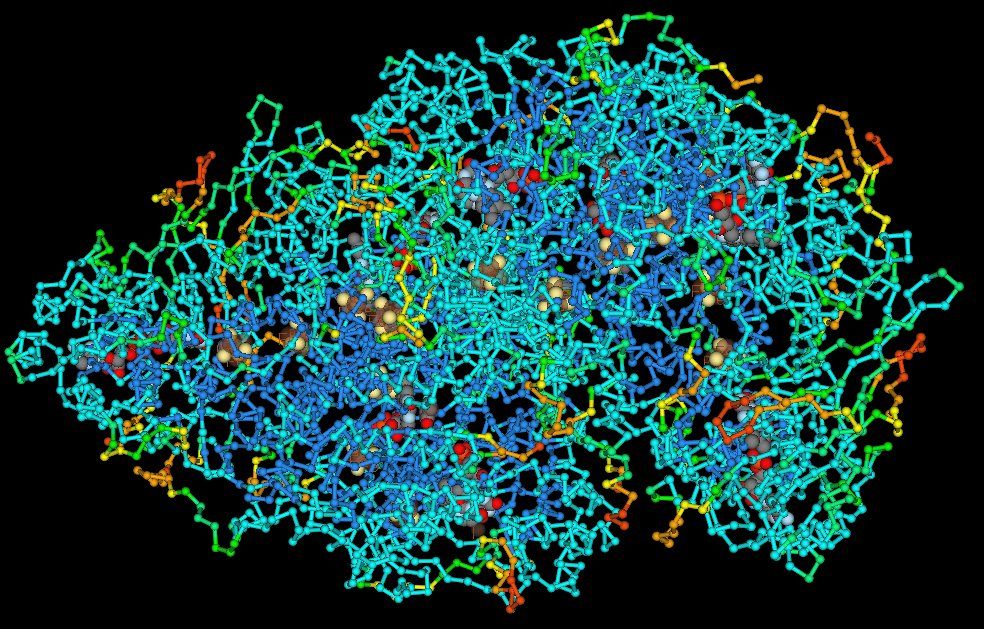Making Best Use Of the Possible of Polymers: Discover the Complex Benefits and Practical Makes Use Of
In the huge landscape of material scientific research, polymers stand out as flexible substances that have actually permeated nearly every aspect of modern life. Their application covers various industries, from production and construction to health care and innovation. The diverse benefits and functional uses of polymers proceed to evolve, offering innovative services to complex challenges. By exploring how polymers can improve product longevity, drive sustainability campaigns, change health care options, and lead the way for future technical innovations, we can reveal a world of possibilities waiting to be used.
Relevance of Polymers in Modern Industries
Polymers play a pivotal role in modern-day industries, working as versatile products that drive advancement and efficiency across a large range of sectors. These intricate molecules, composed of repeated subunits, have changed industries such as automobile, aerospace, electronic devices, health care, and more. In the automotive industry, polymers have allowed the growth of light-weight yet long lasting elements, boosting gas performance and general efficiency. Aerospace markets count on polymers for their high strength-to-weight proportion, crucial for aircraft and spacecraft construction. The electronics market advantages from the insulating homes of polymers, vital for producing motherboard and digital devices (Polymers). Additionally, polymers are extensively used in the health care market for drug delivery systems, medical gadgets, and biocompatible materials. Their adaptability, resilience, and cost-effectiveness make polymers vital in modern manufacturing processes, cultivating innovations and driving development in numerous markets worldwide. Accepting the potential of polymers is crucial to opening additional advancements and attending to the progressing demands of today's commercial landscape.
Enhancing Item Durability With Polymers
With a concentrate on long life and resilience, incorporating sophisticated polymer modern technologies right into item style has come to be a cornerstone of improving resilience in modern-day production procedures. Polymers use a vast array of properties that contribute to the general resilience of products. One essential advantage is their resistance to rust, chemicals, and weathering, making them perfect for use in various sectors where direct exposure to harsh conditions is common.
Additionally, polymers can be customized to meet details durability needs, permitting producers to customize items according to their intended use and expected lifespan. By incorporating polymers into item elements, manufacturers can boost stamina and impact resistance, reducing the chance of damage or wear gradually.
Furthermore, polymers are lightweight yet sturdy, providing toughness without adding unnecessary weight to items. This characteristic is specifically useful in markets such as aerospace and automotive, where lightweight products are important for improving gas efficiency and overall performance.
Sustainability Innovations Via Polymer Innovation
In the world of modern-day production and product layout, the cutting-edge application of polymers is driving considerable advancements in sustainability methods. Polymer development plays a crucial duty in enhancing sustainability by providing solutions that decrease environmental impact you can find out more across numerous industries. One vital aspect where polymers succeed is in making it possible for the development of lightweight yet sturdy materials that add to sustain efficiency in transportation and lower total power usage. Additionally, the recyclability and biodegradability of specific polymers better advertise sustainable techniques by decreasing waste and air pollution.
In addition, advancements in polymer innovation have actually brought about the creation of bio-based and renewable polymers, stemmed from natural resources such as plants, that provide an even more sustainable choice to traditional petroleum-based plastics. These read this environmentally friendly polymers not only assist minimize reliance on fossil gas but additionally lower greenhouse gas discharges during manufacturing. By integrating these innovative polymers into producing procedures, companies can decrease their environmental footprint and move in the direction of more lasting techniques, straightening with worldwide initiatives to deal with climate modification and promote a round economic situation.
Polymers in Medical Care: Revolutionizing Medical Solutions

One of the vital locations where polymers are making considerable strides remains in the growth of targeted drug shipment systems. By encapsulating medicines within polymeric nanoparticles or micelles, scientists can improve medication stability, boost bioavailability, and enable regulated launch, leading to a lot more reliable therapy programs with decreased side results.
Additionally, polymers contribute in the field of regenerative medicine, where they are my sources made use of to develop scaffolds that imitate the extracellular matrix, supplying support for cell growth and tissue regeneration. This modern technology holds immense promise for repairing harmed organs, promoting injury healing, and advancing personalized medicine methods.
Fundamentally, the assimilation of polymers in medical care is driving innovation, boosting treatment effectiveness, and eventually boosting patient end results in ways previously believed unattainable.
Future Applications and Technologies in Polymer Innovation
Advancing at the leading edge of clinical discovery, polymer modern technology proceeds to lead the means for groundbreaking applications and technologies forming varied markets. Furthermore, polymer nanocomposites are improving the mechanical and thermal homes of materials, leading to more powerful and lighter elements in aerospace and automotive sectors. Looking ahead, scientists are checking out the potential of shape-memory polymers for applications in robotics and biomedical tools, where materials that can "bear in mind" and go back to their initial shapes provide amazing possibilities for innovation.
Verdict
